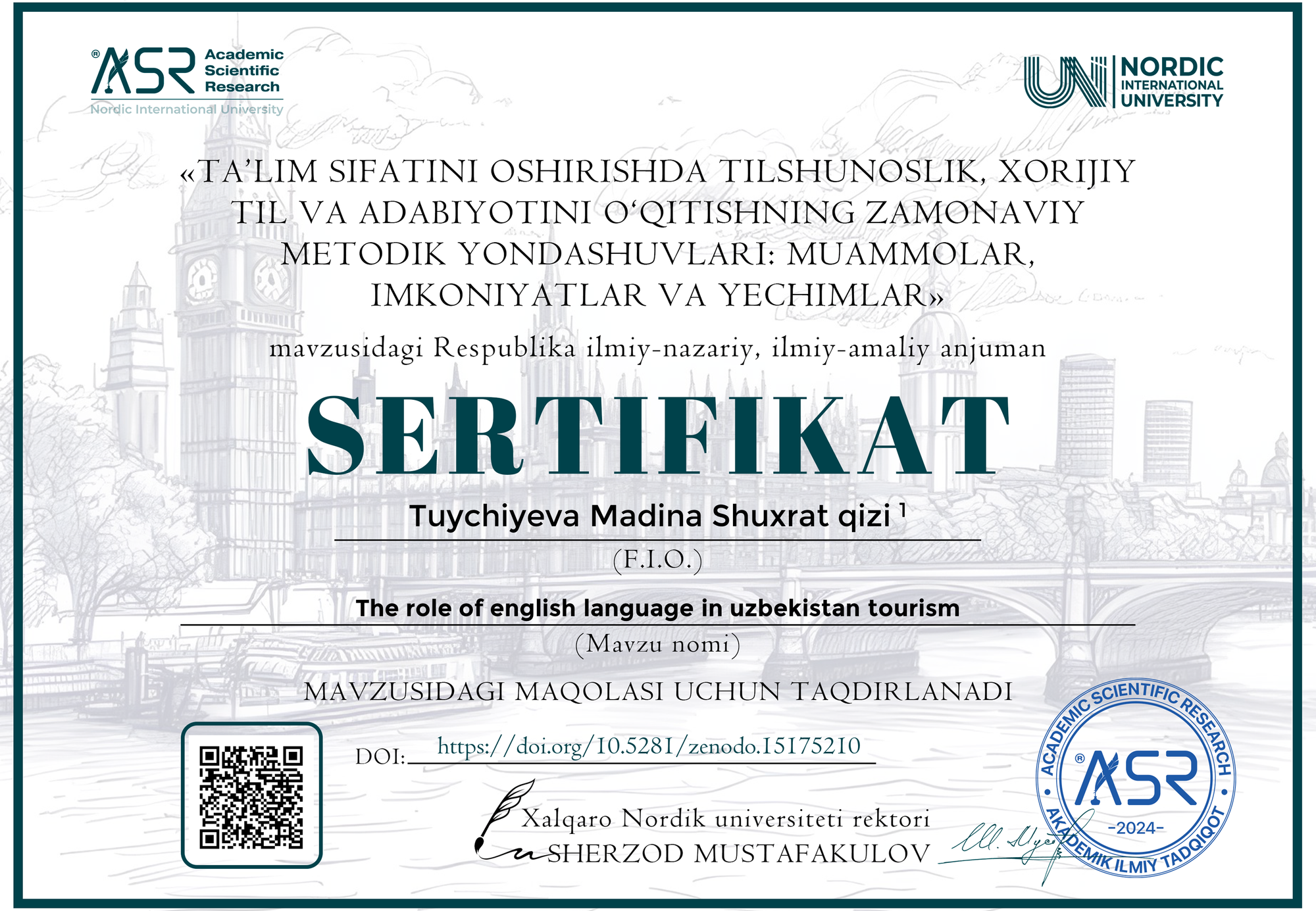Tuychiyeva Madina Shuxrat qizi 1

DOI: https://doi.org/10.5281/zenodo.15175210
Google scholar: https://scholar.google.com/scholar?hl=ru&as_sdt=0%2C5&q=%22THE+ROLE+OF+ENGLISH+LANGUAGE+IN+UZBEKISTAN+TOURISM%22&btnG=
Zenodo community: https://zenodo.org/records/15175210
Nordic_press journal: https://research.nordicuniversity.org/index.php/nordic/article/view/2268
MAQOLANI YUKLAB OLISH
SERTIFIKATNI YUKLAB OLISH
REVIEW:
Tuychiyeva Madina Shuxrat qizi’s article presents a comprehensive and timely analysis of the role of the English language in the development of the tourism sector in Uzbekistan. Through an extensive literature review and contextual evaluation, the paper explores how English proficiency impacts tourist experiences, service quality, and the country’s economic advancement.
Strengths:
Relevance and Originality:
The topic is highly relevant to Uzbekistan’s growing tourism industry. The focus on language as an enabler of economic development and cross-cultural exchange adds originality and practical significance to the study.Clear Structure and Academic Tone:
The article follows a logical structure—introduction, literature review, discussion, and conclusion—with clear, coherent arguments supported by well-cited scholarly sources.Comprehensive Literature Review:
The author draws from a broad range of international and local sources (2012–2024), effectively integrating theoretical and empirical perspectives on language education, tourism policy, and service quality.Balanced Critique and Insightful Findings:
The article identifies both progress (such as policy-level reforms) and challenges (like low proficiency among rural tourism workers) in English language implementation. The findings are logically derived and presented with clarity.Policy and Educational Implications:
Practical recommendations—including industry-specific language training, curriculum reform, and digital resource development—enhance the article’s usefulness for educators, policymakers, and tourism stakeholders.Areas for Improvement:
Primary Data Inclusion:
While the literature review is robust, incorporating empirical data (e.g., surveys, interviews with tourists or tourism workers) would add greater academic weight and originality.Visual Aids and Comparative Data:
Charts comparing tourist satisfaction levels or regional English proficiency could strengthen the analytical clarity of the discussion section.More Cross-Linguistic Examples:
Including specific linguistic examples of signage, guides, or tourist communication (before and after training) would better illustrate the linguistic gap the paper highlights.Conclusion and Recommendation:
This article is a well-structured and insightful academic contribution that effectively connects language competence to tourism development in Uzbekistan. It addresses both theoretical and practical dimensions of the issue and offers actionable solutions. The work is relevant to scholars in applied linguistics, tourism education, and economic policy.



